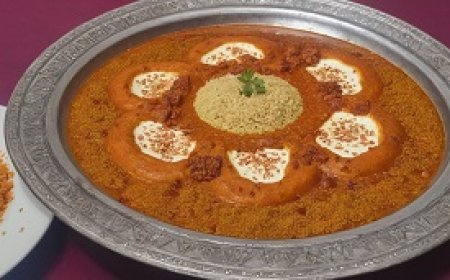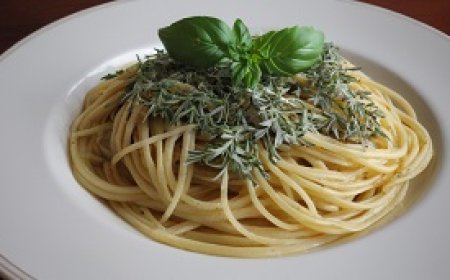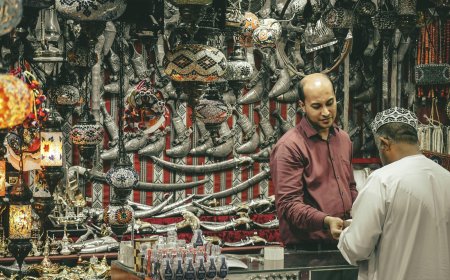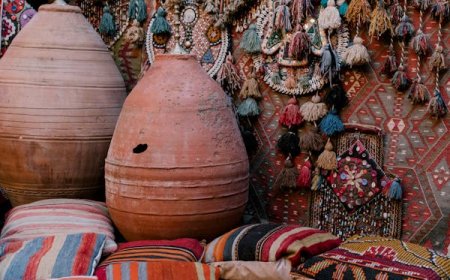Authentic Turkish hospitality customs
The authentic Turkish hospitality customs manifest in a unique blend of warmth and generosity, reflecting deep values of welcome and respect towards guests. Hosting guests is an integral part of Turkish culture, where tea and coffee are generously served, and sharing meals together is seen as an opportunity for communication, understanding, and exchanging stories and ideas. Additionally, Turkish hospitality is characterized by utmost care for the comfort of guests and reaffirmation of interest in them, creating an unforgettable experience that combines authenticity, friendliness, and warm welcome.
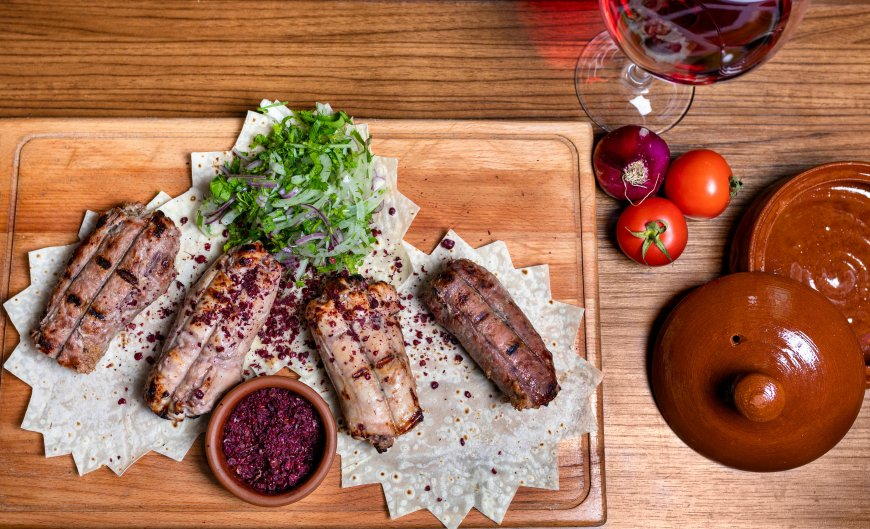
The authentic Turkish hospitality customs manifest in a unique blend of warmth and generosity, reflecting deep values of welcome and respect towards guests. Hosting guests is an integral part of Turkish culture, where tea and coffee are generously served, and sharing meals together is seen as an opportunity for communication, understanding, and exchanging stories and ideas. Additionally, Turkish hospitality is characterized by utmost care for the comfort of guests and reaffirmation of interest in them, creating an unforgettable experience that combines authenticity, friendliness, and warm welcome.
Authentic Turkish hospitality customs
Hospitality customs in Turkey are an integral part of the rich and diverse Turkish culture. These customs are characterized by warmth and generosity, where welcoming and honoring guests are fundamental values in Turkish society. Turkish hospitality manifests in several different aspects including reception, hosting, dining experience, and building social relationships.
Regarding reception, hospitality in Turkey means warm welcome and caring for the comfort of guests. Traditional serving of tea and coffee symbolizes hospitality and welcome, and offering them to guests is seen as the beginning of communication and relationship building. Additionally, guests show their appreciation and respect to the host by presenting small gifts as tokens of gratitude.
The dining experience in Turkey is also an important part of Turkish hospitality. Turkish cuisine is renowned for its diversity and unique flavors, and dining together is an opportunity for communication and exchanging stories and ideas. Turkish cuisine features delicious dishes from various categories such as appetizers, main courses, and desserts, and enjoying them together is a social experience that enhances the sense of belonging and solidarity among guests and hosts.
Furthermore, Turkish hospitality includes caring for the comfort of guests and reaffirming respect and appreciation for them. Showing concern for providing comfort and enjoyment for guests is a commitment to Turkish moral values and the spirit of hospitality. Hosts always strive to demonstrate care and respect for their guests by providing for all their needs and ensuring an enjoyable and comfortable stay for them.
Hospitality customs in Turkey embody the warm and generous spirit of the Turkish people, reflecting deep values of welcome and respect towards guests. These customs combine authenticity, friendliness, and warm welcome, making the experience of Turkish hospitality unforgettable for anyone visiting this beautiful country.
The charm of Turkish hospitality
The charm of Turkish hospitality lies in the blend of authenticity and warmth, translating into a unique and distinctive experience for every guest visiting Turkey. Hospitality customs in Turkey are an integral part of Turkish culture, characterized by warm welcome and great care for the comfort of guests.
In the Turkish hospitality experience, Turks show their appreciation and respect for the guest in various ways. Tea and coffee are generously served, symbolizing the beginning of communication and understanding between the guest and the host. The guest is well taken care of by the host family, demonstrating their appreciation, respect, and readiness to meet their needs.
The Turkish hospitality experience is incomplete without experiencing delicious and savory food. Turkish cuisine is known for its diversity and richness, and delicious dishes are served in a style that combines authenticity and luxury. Guests enjoy food together in an atmosphere of friendliness and welcome, making the experience unforgettable.
Additionally, Turkish hospitality is characterized by great care for providing guests with comfort and everything they need for a comfortable and enjoyable stay. The host is responsible for the comfort of their guests and strives to meet their needs and provide the best services.
The charm of Turkish hospitality lies in the warm and generous spirit of the Turkish people, and in the great care for the comfort of guests and providing everything they need for an unforgettable stay. These customs are an integral part of Turkish culture and represent an important part of the charm of this beautiful country.
Art of presentation and welcoming
The arts of presentation and welcoming in Turkey are an integral part of Turkish hospitality customs, forming the foundation for communication and building social relationships between individuals. These arts of presentation reflect values of respect and care for guests.
The arts of presentation involve offering hospitality in a manner that expresses respect and appreciation for guests. Among the prominent aspects:
1. Serving tea and coffee: Offering tea and coffee in Turkey is a symbol of hospitality and welcome. Tea and coffee are promptly served to guests upon their arrival, serving as a beginning for conversations and communication between the guests and the host.
2. Offering traditional cuisine: Presenting traditional cuisine is another aspect of the arts of presentation in Turkey. Guests are offered a variety of delicious Turkish dishes such as stuffed eggplant, dolma, börek, and others, which is considered an honor for the guests and appreciation for their presence.
3. Welcoming guests with a smile and warmth: Smiling and warmly welcoming guests are among the key aspects of presentation in Turkey. Guests are greeted with a smile and warmth, and the host shows concern for the comfort of their guests and provides for all their needs.
4. Offering small gifts: Presenting small gifts as tokens of thanks and gratitude to guests is among the prominent welcoming arts in Turkey. These gifts may be a bouquet of flowers or souvenir gifts that reflect Turkish culture.
5. Providing comfort and enjoyment: Providing comfort and enjoyment for guests is an essential part of welcoming arts in Turkey. The host always strives to ensure a comfortable and enjoyable stay for guests, providing them with everything they need during their stay.
The arts of presentation and welcoming in Turkey express respect and appreciation for guests and are an integral part of authentic Turkish hospitality. These arts embody the warm and generous spirit of the Turkish people and reflect values of care and social communication.
The Turkish dining experience
The Turkish dining experience is one of the most important elements of Turkish hospitality and represents an essential part of the cultural heritage and social traditions in Turkey. This experience is characterized by the rich diversity of cuisine and unique flavors, reflecting the spirit of social gathering and interaction between guests and hosts.
1. Gathering around food: Dining together in Turkey is a distinctive social experience that brings families, friends, and guests together. Everyone gathers around the table with a spirit of celebration and solidarity, exchanging conversation, laughter, and experiences in an atmosphere of warmth and joy.
2. Diversity of Turkish cuisine: Turkish cuisine is known for its diversity and richness in flavors and natural ingredients. Traditional dishes include a wide range of dishes such as kebabs, appetizers, seafood, desserts, and many other dishes that cater to all tastes.
3. Sharing food: In Turkish hospitality culture, sharing food between guests and hosts is considered an expression of respect and appreciation. Everyone participates in the dishes served, exchanging experiences and tastes with openness and acceptance.
4. Attractive food presentation: The way food is presented in Turkey is an essential part of the art of hospitality. Food is served attractively and neatly on the table, adding a touch of beauty and attention to presentation details.
5. Respecting guests and meeting their desires: The host shows great respect for their guests by meeting their desires and dietary needs. Food is served with care and attention to ensure guest satisfaction and provide them with an unforgettable dining experience.
The Turkish dining experience is not just a meal; it is a social experience that embodies the warm and generous spirit of Turkish hospitality. It combines the rich diversity of cuisine with the spirit of harmony and social interaction, making it an integral part of the authentic Turkish hospitality experience.
Attending to the comfort of guests and confirming respect
Attending to the comfort of guests and confirming respect are essential aspects of Turkish hospitality customs, representing a significant part of social interaction and human relationships in Turkish culture. This care involves meeting the needs of guests and providing a comfortable and hospitable environment for them, while confirming respect reflects the host's appreciation for their guests and their respect as visitors.
1. Meeting personal needs: Meeting the needs of guests is one of the most prominent signs of caring for their comfort in Turkish hospitality culture. The host makes significant efforts to ensure that guests are comfortable and happy during their stay, whether by providing comfortable rooms or meeting any specific needs they may have.
2. Offering advice and assistance: The host shows concern for the comfort of their guests by offering advice and assistance when needed. They can guide guests to tourist attractions, provide necessary information about transportation and getting around the city, enhancing the guests' comfort and making their stay more enjoyable.
3. Providing privacy and tranquility: Respecting guests' privacy and providing a quiet and comfortable environment for them is part of respecting and appreciating them as visitors. Guests are respected and given the opportunity to relax and enjoy their time without interference or disturbance.
4. Expressing continuous care and appreciation: The host continuously shows care and appreciation for their guests by expressing it through actions and words. They can express gratitude and thanks to guests for their attendance and for showing care to them during their stay.
Attending to the comfort of guests and confirming respect in Turkish hospitality customs represent fundamental values for proper human interaction and building good relationships between individuals. They reflect the warm and generous spirit of the Turkish people, making the Turkish hospitality experience unforgettable for everyone who visits this beautiful country.
Building relationships through communication and understanding
Building relationships through communication and understanding is an essential part of Turkish hospitality customs, as these values are among the key factors that make the hospitality experience in Turkey unforgettable. Building relationships through communication and understanding manifests in several aspects of Turkish hospitality:
1. Welcoming and socializing: Relationship building begins from the moment guests are received, where they are welcomed with a warm smile and kind words. This initial encounter is an opportunity for communication and relationship building, as guests and hosts exchange greetings and engage in simple conversations that enhance social interaction.
2. Participating in social activities: Guest participation in social activities is an important part of relationship building in Turkish hospitality culture. These activities may include sightseeing tours, visits to tourist attractions, dining at traditional Turkish restaurants, and more activities that foster communication and understanding between guests and hosts.
3. Listening and empathy: Listening and empathy are fundamental skills in building strong relationships. Understanding involves caring about others' opinions, understanding their feelings, and respecting their perspectives. The host shows genuine interest in their guests by listening to them and positively interacting with them.
4. Cultural and traditional exchange: Cultural and traditional exchange is an essential part of relationship building in Turkish hospitality culture. Guests and hosts can exchange stories, experiences, and cultural customs, enhancing understanding and closeness between the parties.
Building relationships through communication and understanding is a fundamental pillar of Turkish hospitality customs. People in Turkey strive to direct their efforts towards promoting mutual understanding and enhancing social relationships among individuals, creating an environment of understanding, cooperation, and warmth within the context of Turkish hospitality.
Authenticity and warmth
Authenticity and warmth are two essential characteristics that distinguish Turkish hospitality customs, reflecting the essence of Turkish culture and the spirit of respect and welcome that the Turkish people embody. Authenticity signifies the expression of traditional culture and the rich heritage of Turkey, while warmth expresses the friendly and generous spirit that individuals demonstrate in their interactions with guests.
1. Authenticity in welcoming and reception: Welcoming guests in Turkey is distinguished by authenticity and ancient traditions that have lasted for centuries. Welcoming guests is seen as an opportunity to showcase authentic Turkish culture and traditions, whether through offering Turkish tea or coffee, or presenting traditional sweets like baklava and lokum.
2. Warmth in interaction and understanding: Hospitality relationships in Turkey are characterized by warmth and friendliness, treating guests as members of the family and reciprocating with humility and respect. People in Turkey have the ability to communicate directly and openly, facilitating understanding and enhancing social relationships among individuals.
3. Genuine listening and expressing interest: Genuine listening and expressing interest in what the guest has to say are fundamental aspects of warmth in interactions. The host shows genuine interest in the opinions of the guests, attempting to understand their feelings and needs, creating an atmosphere of trust and comfort between both parties.
4. Appreciation for guests and offering hospitality with a spirit of generosity: Appreciation for guests and offering hospitality with a spirit of generosity are integral parts of warmth in interactions in Turkey. The host always strives to provide everything they have for the comfort of the guests and their enjoyment of the stay, expressing gratitude and thanks for their presence in a direct and straightforward manner.
Authenticity and warmth are two characteristics that reflect the essence of Turkish hospitality, embodying cultural heritage and the friendly spirit of the Turkish people. They express appreciation and respect for guests and enhance social relationships among individuals, making the hospitality experience in Turkey truly unforgettable and distinctive.
Summary
Authentic Turkish hospitality customs are characterized by authenticity and warmth, reflecting a culture rich in traditions and social values. These customs include warm greetings and friendly interaction with guests, and offering hospitality generously and graciously. Turkish hospitality is distinguished by serving tea and coffee in a traditional manner, and providing abundant and delicious traditional dishes. Moreover, there is a focus on the comfort of guests and a confirmation of respect for them by providing services and meeting their needs. These authentic customs embody the essence of Turkish hospitality and make the hospitality experience in Turkey unforgettable for all who visit this beautiful country.
Sources
1. Turkey Travel and Tourism Guide - The official website of the Turkish Ministry of Culture and Tourism provides comprehensive information about Turkish culture, including authentic Turkish hospitality customs.
2. Culture of Turkey - The Culture Trip website offers articles and useful resources about Turkish culture, including hospitality customs and traditions.
3. Turkey Customs and Traditions - The "Country Reports" website provides an overview of customs and traditions in Turkey, including Turkish hospitality.
What's Your Reaction?




















































